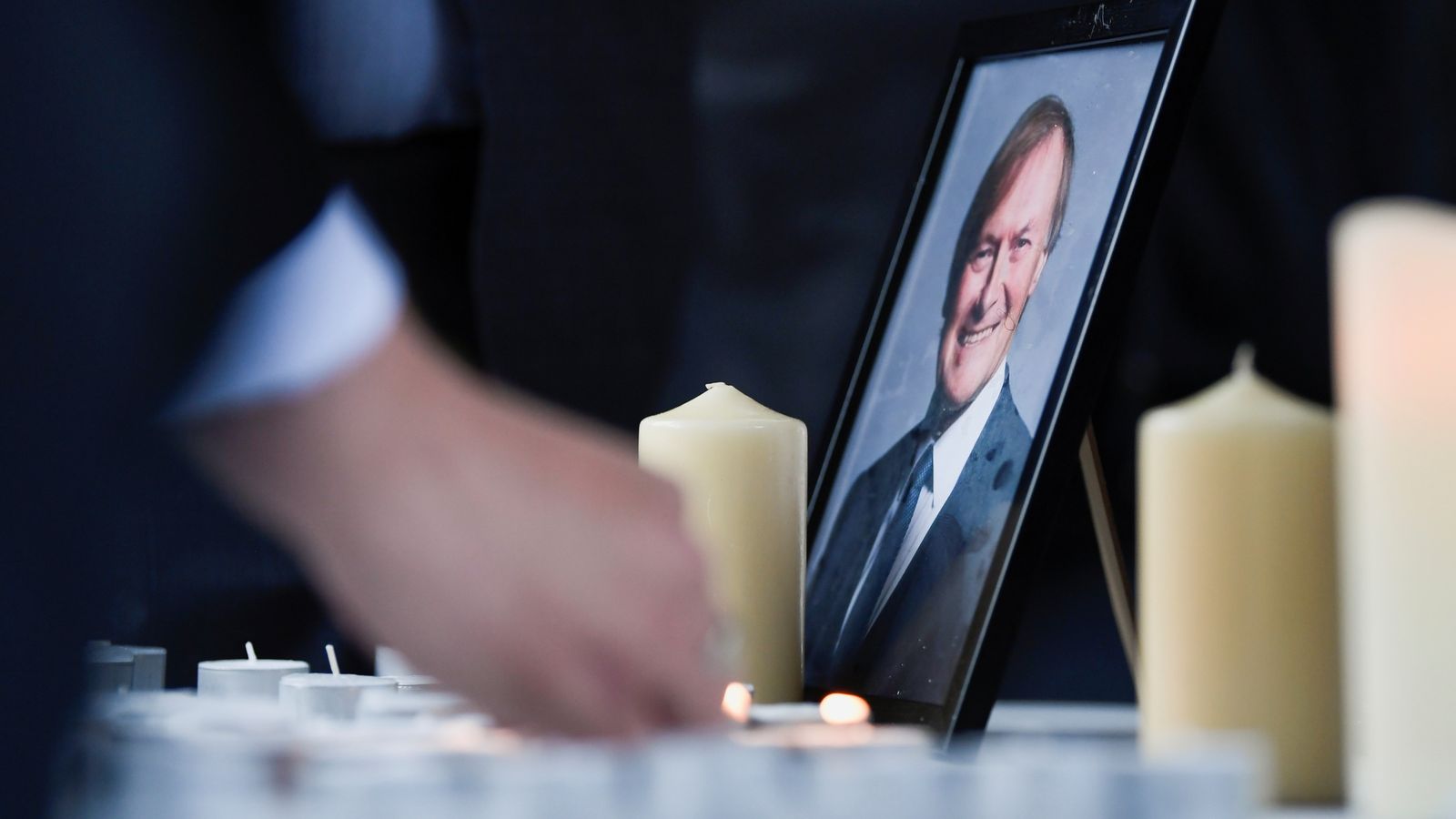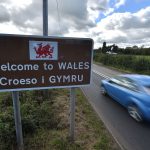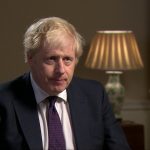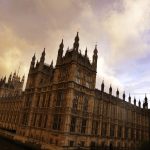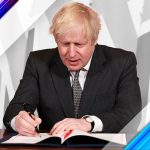Despite the frequent accusations of politicians being “out of touch”, meeting your MP may actually be a lot easier than you think.
Even in Westminster, anyone can go into parliament, plonk themselves down in the ornate central lobby and ask the desk staff to call their elected representative.
Suspect made appointment to see Sir David Amess at constituency office – follow live updates
Please use Chrome browser for a more accessible video player
But while this access is relatively open, security is very tight.
Airport style scanners and metal detectors adorn each entrance, with multiple armed police officers also present.
Contrast this with the circumstances in which Sir David Amess was killed on Friday: in a church, with no security and with his location advertised online in advance.
Yes, the situations are different; but it’s still no surprise that many are now calling for security to be increased at constituency surgeries.
Sir David Amess death: Priest who was refused entry to crime scene where MP died says he respects Essex Police decision
‘My car was smashed up, someone tried to get into my house’: Conservative MP speaks out in wake of colleague’s killing
Sir David Amess killing: MPs could get police protection for constituency surgeries in wake of stabbing – Home Secretary says
But what are the chances of police officers being deployed? Or metal detectors brought in?
As a standardised policy for every MP, both of these options seem unlikely.
Please use Chrome browser for a more accessible video player
Former cabinet minister David Davis said he would not take up the offer of police protection.
He also expressed concern about any loosening of the link between the public and their elected representatives, saying those who came to surgeries were often “the people for whom there is nothing else left”.
Another suggestion from the home secretary was for MPs to move to a pre-booked system for surgeries where those attending are vetted in advance.
Following the murder of Jo Cox in 2016, some MPs have already moved away from a “drop-in” style of surgery.
Please use Chrome browser for a more accessible video player
But others prefer a more open access approach, with many Conservative MPs defiantly advertising the locations of their informal sessions this weekend.
Labour MP Mike Gapes – who knew Sir David – also warned that in constituencies with many different first languages vetting via social media would be impossible and would distract from actual case work.
“A huge part of overworked case workers time is spent helping people with desperate housing, benefits, and asylum and immigration cases,” he said.
Other MPs have expressed frustration at patchy levels of support between different police forces.
Please use Chrome browser for a more accessible video player
Shadow foreign secretary Lisa Nandy told Sky News she was forced to walk through an intimidating Brexit protest in Westminster with little assistance.
Police officers say that support is already available to MPs where specific threats have been made, but caution that continuous protection for all members would cause resource issues.
Ultimately, as in many professions, the risk to MPs can never be completely eliminated and a balance will have to be struck.
But it’s a sad irony that – as we’ve seen in Essex – it can be those MPs who are the most committed, and the most available to their voters, who are also the most vulnerable.
